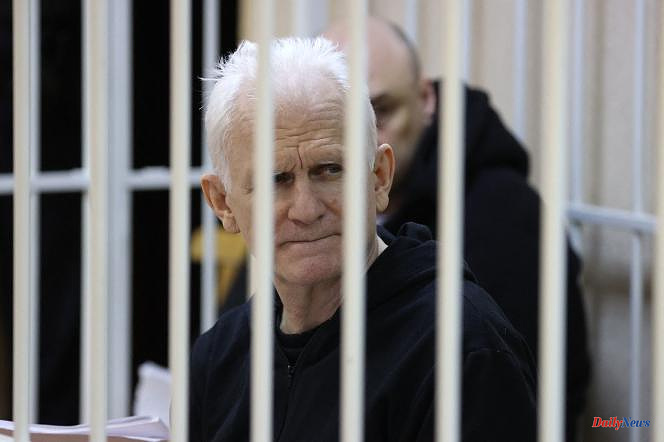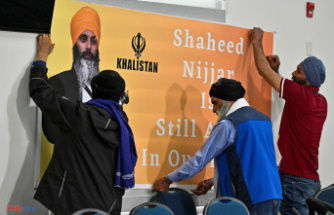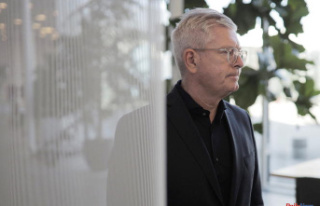A Minsk court sentenced activist Ales Bialiatski, co-winner of the 2022 Nobel Peace Prize and key figure in the democratic movement in Belarus, to ten years in prison on Friday March 3, his NGO said in a statement. The Viasna organization specifies that two co-defendants of Mr. Bialiatski, imprisoned and tried alongside him, Valentin Stefanovitch and Vladimir Labkovitch, were sentenced to nine and seven years in prison respectively.
Ales Bialiatski and his colleagues are accused of smuggling large amounts of cash into Belarus and funding class actions that "greatly undermine public order". All three men had pleaded not guilty. A fourth defendant, Dmitry Solovyov, tried in absentia after fleeing to Poland, received an eight-year prison sentence. All were also fined 185,000 Belarusian rubles (69,000 euros). Ales Bialiatski had already spent nearly three years in prison between 2011 and 2014 after being convicted in another case denounced as political.
"Shameful Injustice"
This heavy verdict is part of a new series of trials targeting activists, journalists and opponents repressed since the protest movement against power in the summer of 2020. These protests, triggered after the controversial re-election of President Alexander Lukashenko, accused of massive fraud, were put down with thousands of arrests, cases of torture, several deaths of demonstrators, heavy sentences and forced exiles. The country had 1,461 political prisoners as of March 1, according to Viasna.
In the fall of 2022, Mr. Bialiatski received the Nobel Peace Prize along with two other human rights organizations, Memorial (Russia) and the Center for Civil Liberties (Ukraine). The 60-year-old activist founded and led for years Viasna, the main human rights group in this authoritarian regime led since 1994 by Mr. Lukashenko. During the 2020 protesters, the NGO Viasna had played a key role in documenting the crackdowns and arrests.
In addition to the Viasna trial, others target activists in the democracy movement in Belarus. Among them, exiled opposition figure Svetlana Tikhanovskaya - who denounced a "shameful injustice" in the Bialiatsky affair - and several of her collaborators, but also several imprisoned journalists from the website Tut.by, the main independent media from the country.
Rear base of Mosou
The trial of the three founders of the opposition media Nexta, which played an important role in the 2020 challenge, opened in mid-February. Two of them are on trial in absentia, the third, Roman Protassevich, was forcibly brought back to Belarus in May 2021, after the hijacking of an airliner on which he was traveling to Minsk. Mr. Protassevich agreed to cooperate with the authorities, while his partner, Sofia Sapega, who had been arrested with him, was sentenced to six years in prison.
In February, Belarusian-Polish journalist and activist Andrzej Poczobut was sentenced to eight years in prison, sparking protests from Warsaw.
Westerners passed several rounds of sanctions against Minsk for the crackdown on the 2020 protests, but the regime still enjoys Moscow's unwavering support. He agreed to serve as a rear base for Russian troops to attack Ukraine in February 2022, but his army has not taken direct part in the fighting so far.












